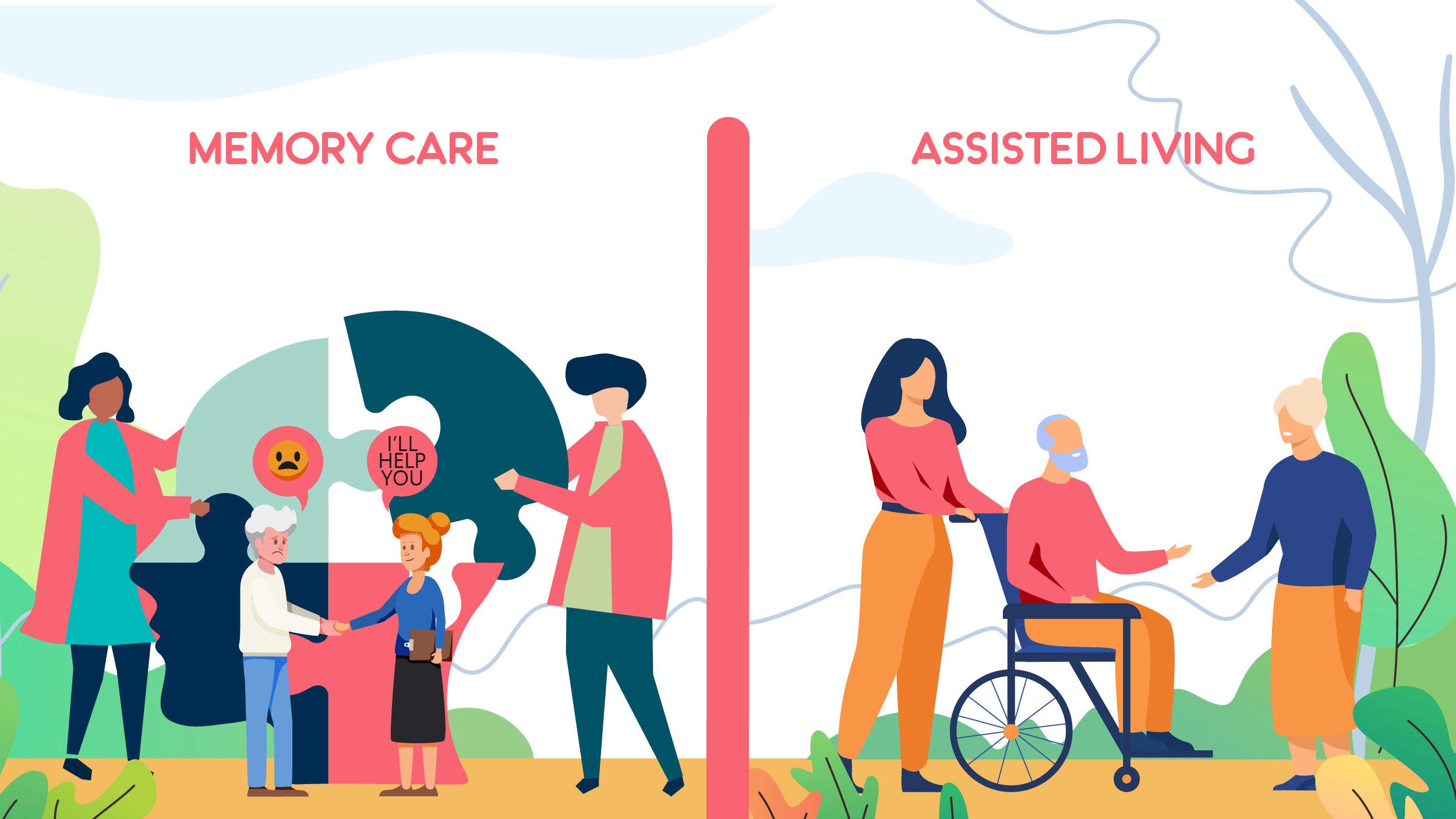Family-Oriented Facilities Offering Personalized Alzheimers Care Charlotte
Family-Oriented Facilities Offering Personalized Alzheimers Care Charlotte
Blog Article
Compassionate Alzheimer's Take care of Your Loved Ones
The complexity of Alzheimer's disease requires a specific strategy to care that highlights concern and understanding. Identifying the psychological and emotional needs of people affected by this condition is critical in enhancing their lifestyle. Caretakers play a vital duty in producing an atmosphere that promotes dignity and respect, using methods that promote psychological connection and decrease stress and anxiety. As we check out the different approaches and methods that can transform caregiving into a much more compassionate experience, it becomes clear that the trip is as much about the caretaker as it is about the specific with Alzheimer's.
Recognizing Alzheimer's Disease
Alzheimer's illness is a progressive neurodegenerative condition that primarily influences cognitive feature, causing amnesia, damaged thinking, and adjustments in behavior. It is one of the most typical type of mental deterioration, making up 60-80% of all cases. The illness commonly shows up in people aged 65 and older, although early-onset Alzheimer's can happen in younger people.
The pathophysiology of Alzheimer's entails the buildup of amyloid plaques and neurofibrillary tangles in the mind, resulting in neuronal degeneration and synaptic loss. These changes disrupt interaction in between brain cells, progressively impairing cognitive capacities and daily functioning. Early signs and symptoms may include trouble bearing in mind current events and obstacles in analytical, which can intensify to disorientation and trouble with language.
As the condition developments, people may show profound memory deficits, confusion about time and place, and trouble recognizing enjoyed ones. Behavior modifications, including withdrawal, anxiety, and stress and anxiety, may likewise happen. Recognizing the medical progression of Alzheimer's is crucial for caretakers and medical care service providers, as it informs efficient monitoring techniques and interventions tailored to the needs of people influenced by this devastating problem.
The Relevance of Compassionate Care
Thoughtful care is necessary in sustaining individuals with Alzheimer's illness, as it dramatically boosts their lifestyle. This method prioritizes the emotional and psychological health of people, promoting a setting that promotes understanding, regard, and dignity. Individuals with Alzheimer's usually experience stress and anxiety, frustration, and complication, which can be relieved with caring interactions.
Compassion in caregiving not only helps in identifying the distinct requirements of each person however also reinforces the caregiver-patient partnership. When caregivers approach their functions with concern, they produce a risk-free room where clients feel valued and comprehended, which can lower behavior obstacles associated with the disease. This supportive environment urges better communication and involvement, assisting in a much more reliable action to the treatment given.
Furthermore, caring care prolongs beyond the individual; it additionally encompasses support for households. Caretakers who practice compassion are much more furnished to resolve the emotional problem encountered by liked ones, supplying reassurance and assistance via a tough trip. Eventually, the importance of thoughtful care depends on its capacity to transform the caregiving experience, leading to enhanced results for both people with Alzheimer's and their family members.
Practical Caregiving Strategies
Reliable caregiving for people with Alzheimer's condition needs functional methods that resolve the special difficulties presented by the condition. Among the primary useful reference methods is establishing a consistent day-to-day routine, which can offer structure and knowledge, lowering stress and anxiety for both the person and the caregiver. Caretakers must also streamline tasks by damaging them down into smaller sized, manageable steps, thus improving the person's feeling of accomplishment and decreasing irritation.
Communication is an additional crucial facet; caretakers must make use of clear, easy language and preserve eye contact to cultivate understanding. Utilizing visual signs, such as pictures or labels, can even more help understanding and navigating in the environment.
Security is extremely important. Adjusting the home to get rid of threats-- such as securing rugs or setting up grab bars-- can assist stop mishaps. Furthermore, caregivers must motivate self-reliance by enabling individuals to engage in familiar activities, which can reinforce self-esteem and promote health.
Psychological Support Methods
Psychological wellness is a critical part of care for individuals with Alzheimer's disease, as it straight impacts their top quality of life. Alzheimers Care Charlotte. Supplying emotional assistance techniques can significantly boost their everyday experiences and foster a complacency and belonging
One efficient strategy is energetic listening, which involves providing complete interest to the person, acknowledging their sensations, and responding with compassion. This strategy helps the individual really feel valued and understood, decreasing feelings of isolation or stress. Furthermore, utilizing validation treatment can be helpful; as opposed to dealing with false impressions, caregivers can attest the person's experiences and feelings, advertising a soothing setting.
Taking part in memory therapy is one more effective approach, permitting individuals to share sensations, memories, and stories linked with their past. This not just stimulates cognitive function yet also strengthens emotional links. Integrating acquainted songs or art can additionally stimulate positive feelings and stimulate joyous communications.
In addition, making certain normal physical touch, such as holding hands or gentle hugs, can provide comfort and confidence, enhancing emotional bonds. These methods, when constantly applied, can create a nurturing ambience that supports the emotional wellness of individuals with Alzheimer's, boosting their general well-being.
Developing a Helpful Environment

To start with, consider the physical design of the living room. Clutter-free locations, acquainted furnishings arrangements, and well-defined pathways can decrease confusion and promote wheelchair. Making use of soothing shades and adequate lighting can further improve the ambience, making it more welcoming and less daunting.
Secondly, consistency is essential. Preserving a predictable everyday routine helps people with Alzheimer's feeling much more safe. Familiar tasks, routine dish times, and arranged social communications can substantially minimize stress and anxiety and disorientation.
Additionally, sensory elements play a vital function. Integrating acquainted fragrances, music, and responsive objects can stimulate positive memories and stimulate engagement. Individualizing the area with cherished pictures and purposeful objects can also cultivate a sense of identification.
Conclusion
Thoughtful Alzheimer's care dramatically boosts the lifestyle for people affected by this modern condition. By prioritizing emotional health and implementing efficient caregiving approaches, caregivers check my blog can foster an atmosphere that advertises dignity and belonging. Strategies such as energetic listening and developing consistent regimens serve try this website to ease anxiousness while strengthening the caregiver-patient relationship. Ultimately, this method not only supplies important comfort and support but likewise equips individuals to navigate the intricacies of Alzheimer's with self-respect and poise.
As we discover the various techniques and techniques that can change caregiving right into a more thoughtful experience, it ends up being clear that the trip is as much regarding the caretaker as it is about the specific with Alzheimer's.

Compassionate care is crucial in supporting people with Alzheimer's condition, as it significantly improves their high quality of life - Alzheimers Care Charlotte. Inevitably, the relevance of compassionate treatment exists in its capacity to change the caregiving experience, leading to improved outcomes for both individuals with Alzheimer's and their families
Caring Alzheimer's care significantly enhances the high quality of life for individuals affected by this progressive disease.
Report this page